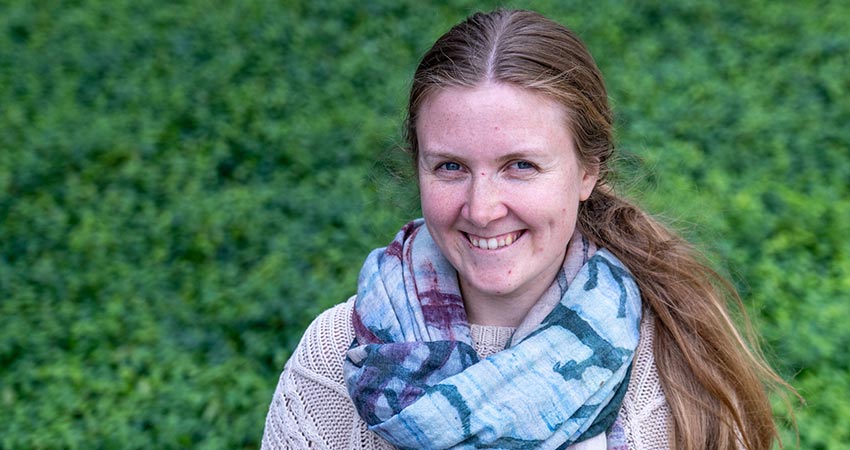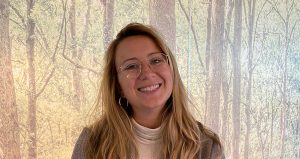Martha Gjermo: “Water does not see borders”

-
 Editorial Team
Editorial Team
Share article:
Martha Gjermo from Norway participates in the European Junior Water Programme (EJWP). “My motivation was the need and the desire to learn more about the European water sector. What are the challenges and solutions, climate effects and differences throughout the continent. Important issues need to be solved internationally. Water does not see borders.”
Where do you work now?
“I currently work at Aqua Alarm, a startup on drinking water quality monitoring. I worked here for about one year when I started in EJWP.”
What did you study?
“I have a bachelor’s degree in administration and leadership and a master’s degree in environmental, resource and development economics.”
What do you hope to learn through EJWP?
“Through EJWP we learn a lot from each other. The group of participants is diverse, both in terms of backgrounds and work positions as well as international representation and personalities. The personal trainings have given much more insight than I expected beforehand. Also the projects we have worked on have been very diverse. I am definitely accomplishing my goals of learning – not only what I thought I’d learn, but also about the complexity of water resources from different perspectives. The participation in EJWP has broadened my view on how water is distributed in the world. It has really changed my mindset, even though I considered myself relatively water-aware before I began the programme.”
What was your best experience with EJWP so far?
“The best experience so far is the people, no doubt. We have become more like friends than colleagues, and I have really enjoyed the time we have spent together. Traveling has not been an option the last year, and I think we are all sad that we have not been able to meet in person during this time. I really look forward to the closing week when we can all meet in person again!”
What have you already learned?
“To me it has become even more clear that water is clearly an international issue and needs to be dealt with internationally. Local and circular solutions are important and needed, but water does not see borders. We need to tackle the complexity of water distribution and availability at an international level, as well as on the local level. Water is closely connected to climate change. Availability, quality and rainfall patterns will change over the next decades depending on how we solve the climate crisis. No country or continent can solve this crisis alone. International cooperation is key. Pollution and other activities with negative climate impacts often impact water quality – and resolving pollution issues locally can impact both long term climate effects as well as short term water quality.”
What can international water professionals mean for the water sector?
“Generally, short-term goals are more motivating to a population than long-term ones. Creating water-based climate goals that can be seen, felt, and measured after only a short period of time could be a way to gain more motivation for long-term climate goals. International professionals need to work together not only across borders, but also through interdisciplinary approaches to be able to tackle the large and complex problems that we all face as a planet.”
Where or in which position would you like to work in five years?
“In five years, I would like to work with water and climate issues on an international level, raising the awareness of the importance of water and how international cooperation and local solutions can solve more than just the water crisis, but ensure that millions of people can continue to live in the areas that they now call their home.”
More information: European Junior Water Programme

















